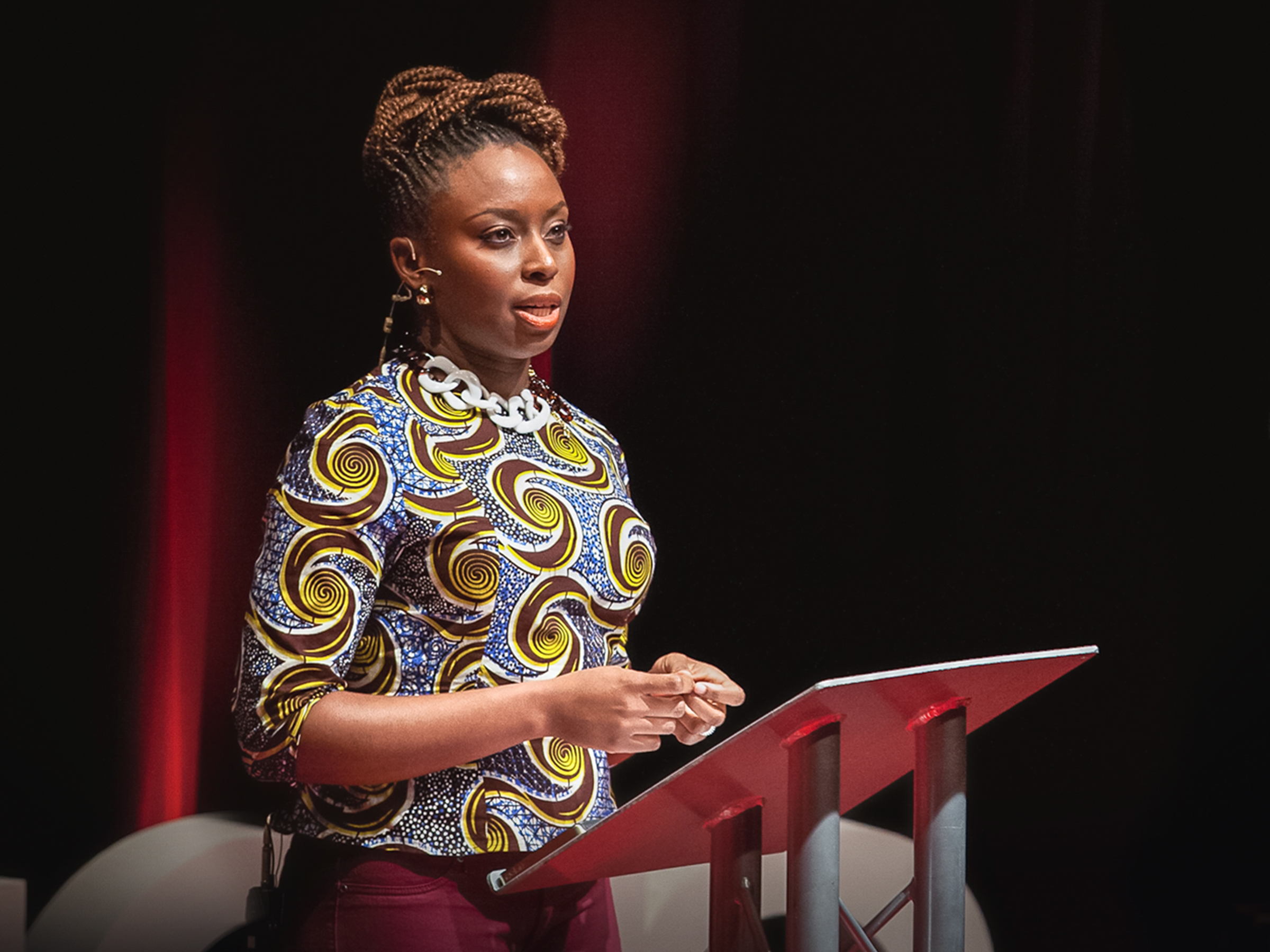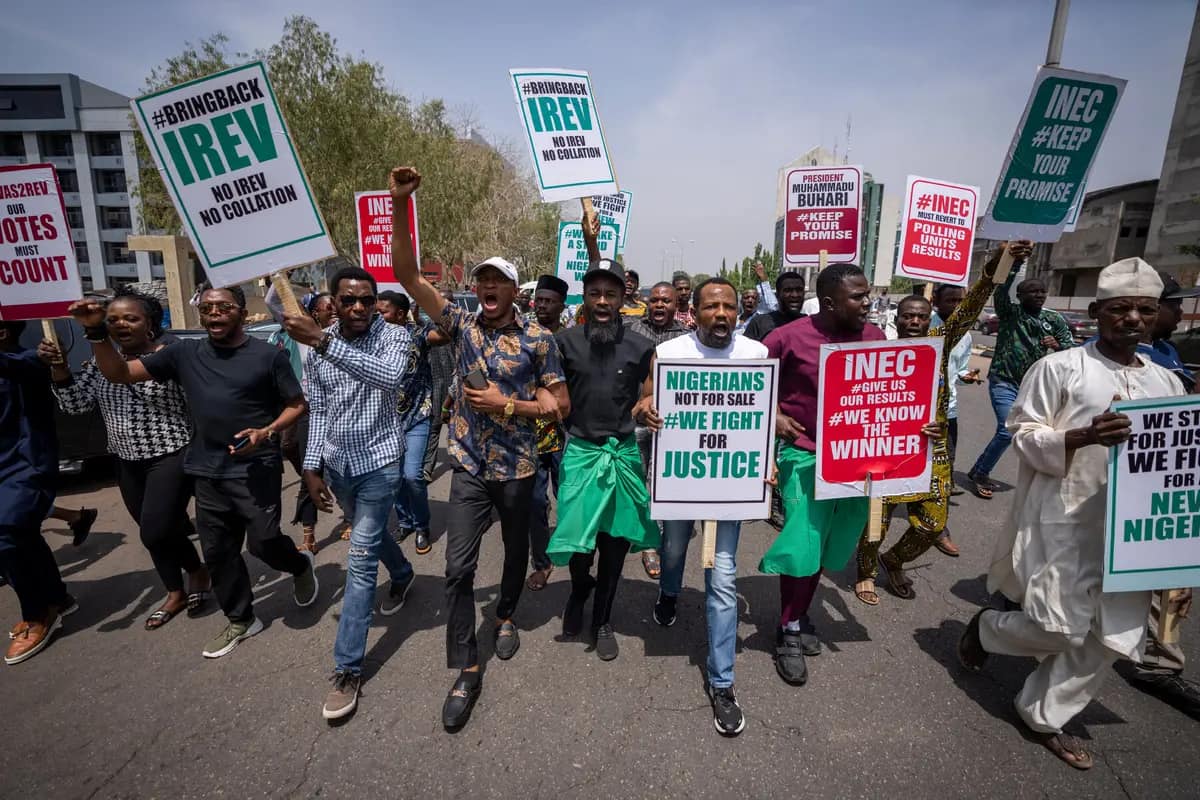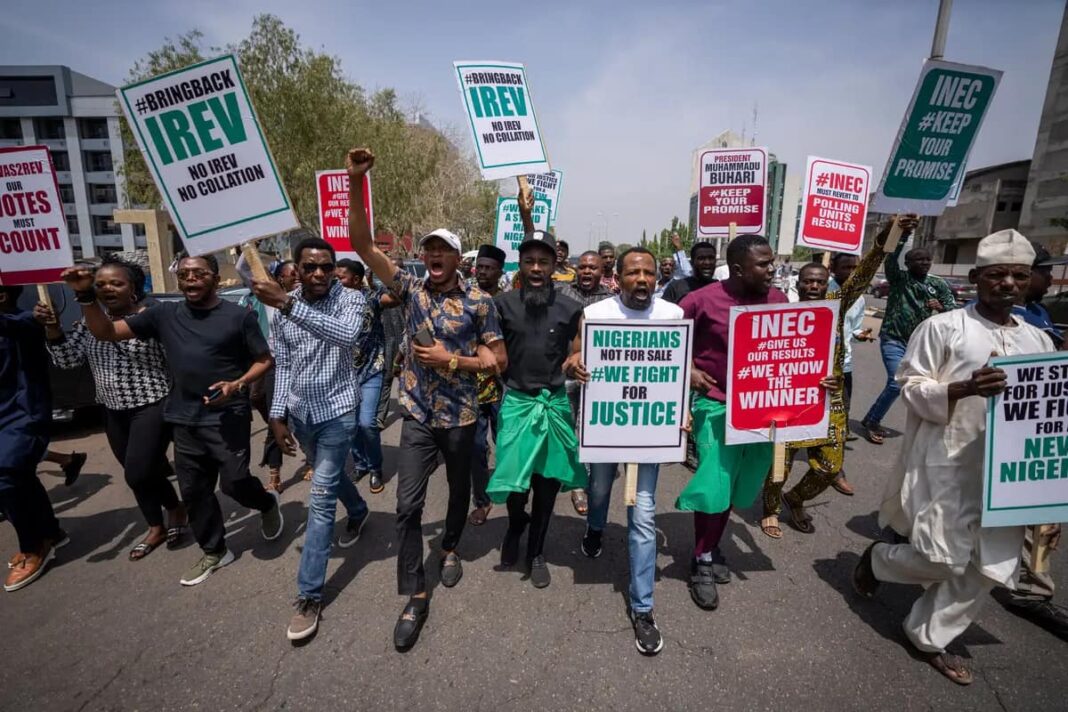Imagine standing patiently in line, waiting to vote, and suddenly men with guns arrive on motorcycles and start shooting. Imagine men dashing into your polling unit, violently seizing ballot boxes and taking them away. Imagine other ballot boxes being destroyed. Imagine being beaten to keep you from voting for a particular candidate. Imagine a crowd of people chanting “We must vote! We must vote!” when polling workers failed to arrive as expected. Imagine the police doing very little. All these things happened during the Nigerian presidential elections on Saturday. Through it all, there was a chilling lack of transparency from the Independent National Electoral Commission, or I.N.E.C., which oversees elections.

Nigerian elections have a history of being rigged, of cooked-up numbers and stolen ballot boxes. This time, though, Nigerians were asked to place their faith in a new electronic voting system that would make tampering more difficult. Technology would be the savior: In each polling unit, votes would be counted in the presence of voters and then immediately uploaded to a secure central portal. Failing to upload the results in real time was the most egregious of the many irregularities of this election because it has destroyed the cautious trust with which many approached the process.
The I.N.E.C. blames technical issues for the delay. How, Nigerians wonder, can a well-funded electoral body that had four years to prepare for an important presidential election make such a significant blunder? It is reasonable, then, that many voters have assumed purposeful intent, that election workers were instructed not to upload results so that they could later be secretly manipulated.
I know Nigeria, the country of my birth, intimately. I know the political culture, where the exchange of large amounts of money makes so many people conscience-deficient, where the mainstream media’s instinct is political deference and where the will of the people is often ignored. Nigerians, especially young Nigerians, are determined that this time, their votes will matter. A majority of Nigerians are below the age of 35. They are a bright, innovative and talented generation, a hungry generation, starved of good leadership, who do not merely sit back and complain but who act and push back and want to forge their own futures.
On Saturday, many went out to vote, enthusiastic but cautious, their phone cameras ready to record any irregularities. They waited for election workers who arrived many hours late to polling stations. They braved the harassment and beatings of men paid to create chaos. They went off and bought their own ink for finger-printing when election workers claimed to have run out of it. They provided their own light from their phones as they stood in line in the dark, and according to one recorded case, a voter brought a small generator to a polling place when the voting machine stopped working. They refused to leave even though they had to wait so long that it was almost dawn when they could finally vote. And when it began to rain, they came together and sang beautiful songs. I have never been so proud of my fellow Nigerians. Many were voting for the first time, inspired by one candidate, Peter Obi, who has brought to them that ineffable thing that we humans need to thrive: hope.
Now, as results are being counted, there is growing disillusionment. A sludge of tension is in the air. A simmering rage. Some voters say that the official numbers trickling in do not match the numbers from their polling units, that the results tell a story different from what they witnessed on Saturday. They are convinced of the complicity of those who should be caretakers of the democratic process.
Elections must always be transparent, of course, but for an abysmally low-trust society like Nigeria, a radical transparency is needed for credibility. Elections must be completely transparent and must be widely seen to be completely transparent; sadly, neither seems to apply to Nigeria’s presidential election.

African democracies are criticized, often condescendingly so, in ways that stoke resentment, not because the criticism isn’t valid, but because it isn’t fair. Africa is full of young nation-states, and democracy takes time to establish its roots, and even when it does, the fragility always remains.
I’ve always found it curious that African countries were expected to form functioning democracies right after independence, even though the colonial governments they had only just freed themselves from were dictatorships in everything but name. Nigerians want a functioning democracy, and they are starting on the path to it but might be derailed unless the international community pays attention now.
Nigeria is Africa’s tottering giant, the continent’s most populous country, the most politically and culturally dominant. To pay real attention to Nigeria is to signal that Africa matters, as the United States has always maintained. The Biden administration needs to stand behind the Nigerian people now and make a firm commitment to support election transparency. Besides — my tongue is lodged in my cheek — you don’t want a wave of Nigerian asylum seekers fleeing the unbearable discontent of living under an illegitimate government.
Sometimes democracies are threatened by foreign invasions and sometimes democracies are most at risk from internal forces. All of them need support.
By Chimamanda Ngozi Adichie
Chimamanda Ngozi Adichie is a novelist and the author, most recently, of “Notes on Grief.”
This article was first published on New York Times


